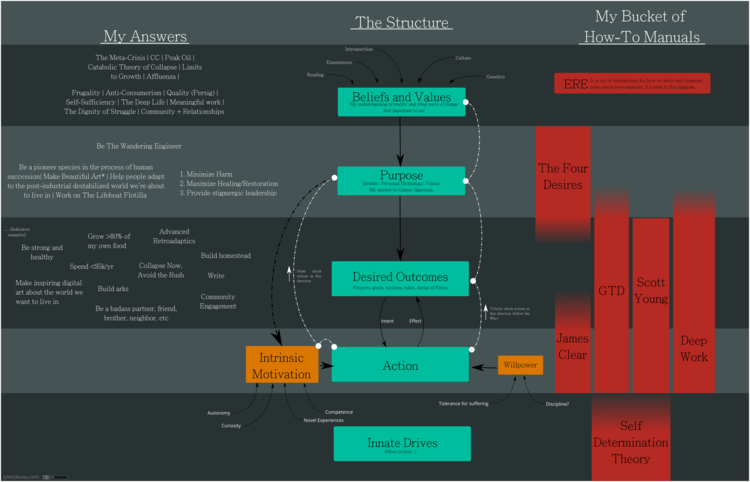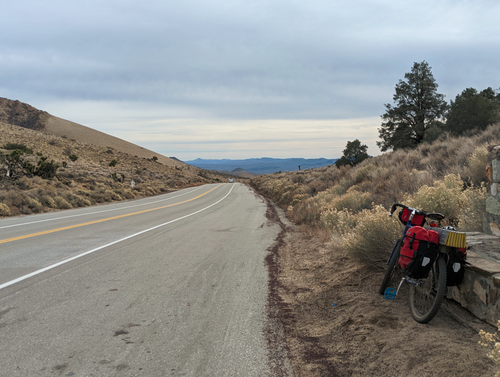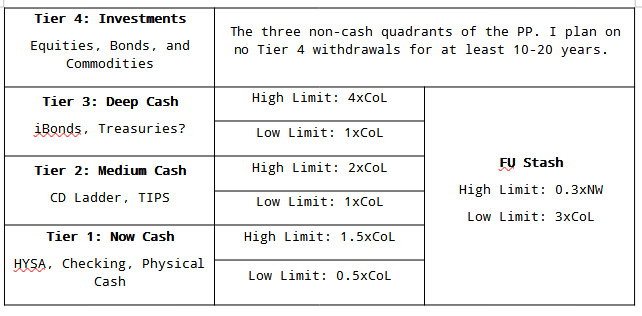Re: The Education of Axel Heyst
Posted: Mon Dec 19, 2022 8:17 pm
This is exciting, please pictures when you guys finally gather
---the more you know, the less you pay
https://forum.earlyretirementextreme.com/
https://forum.earlyretirementextreme.com/viewtopic.php?t=11126
This stood out to me. Lately, I'd been wondering why after about a year of not-even-that-hard work, I am feeling the beginning of burnout again. It makes perfect sense that the above is exactly what's happening. High-stress work situations generated stress, body associated the presence of stress alongside other strategies for coping with having a j*b (keeping w the spellingAxelHeyst wrote: ↑Wed Dec 21, 2022 10:46 amI learned overload-survival grind tactics and habits and they became my default. I'm conditioned to feel and act overloaded even when I'm not. The mere presence of projects seems to trigger this overload state. This conditioning seems very ingrained and difficult to unlearn.
Here is the short answerCrusader wrote: ↑Thu Dec 22, 2022 12:58 amYou are talking about how one would optimize stress levels by adjusting what they focus on given, let's call them, personality differences. My struggle has always been about what I actually want (to choose) to work on. Any thoughts on that (i.e. not how you optimize for stress, but what projects you work on)? Surely, it's not just the organization of the work (a startup, large corporation, contracting, etc), but it's also your values (e.g. saving the environment) that come into play.
In your case, maybe you focus on what skill you feel like developing on the moment, or what opportunity presents itself?

like you would heal any other conditioning, i assume:


I've found a lot of value in planning out a withdrawal strategy over the last few months. It is a little challenging because projecting more than a couple years into the future presents a lot of unknown variables. Nonetheless, to @Jacob's point, it requires a more careful examination of where you hold certain investments and how you might access those in the future.AxelHeyst wrote: ↑Thu Dec 29, 2022 1:31 am[*]I'm not at the moment pursuing an accumulate>FI strategy. I'm figuring out some sort of semiERE path. But I was using a lot of accumulate>FI thinking and metrics. I don't think my mindset was really in a semiERE place. I was basically still doing accumulate>FI, just in the most terrible way possible. I thought I needed to be making money all the time.
[*]To cut myself some slack: this came from the fact that by the time I'd returned from Europe in September, I hadn't earned money in over a year. I needed to make some money, sometime. And I'd only ever made money as a salaryman. So it felt urgent to me to prove to myself that I can in fact earn money outside of the normal formal economy.
You may have figured this out by now, but conducting a roth conversion doesn't mean you have to move that money from Tier 4. It just means that you are limiting your future tax liability while creating a little more financial flexibility. The fact that you may be earning passive income (or even regular income) in the future makes an even stronger case to complete a conversion during low/no income years. This could equate to a significant return depending on your future tax bracket.AxelHeyst wrote: ↑Thu Dec 29, 2022 1:04 pm@wrc: The idea for now is to not withdraw/spend from Tier 4 at all until maybe 10-20 years, if and when it makes sense to do so. However, I just read your post about your Roth conversion strategy, which I'm now going to be looking into. I had the idea that you had to withdraw from the Roth after 5 years, not sure why.
At any rate, your post which I misunderstood at first made me realize there's something I didn't explain very well. I think there is a decent chance that the activities I'm intrinsically interested in doing in the next 3-8 years will begin to generate passive(ish) income and eventually I'll have an inflow in excess of my cost of living. This is actually maybe a big point that I didn't mention above, that helps this make more sense:
I recall one guy on the PCT who dehydrated all his own meals. His food looked and smelled really good. One evening I remember him eating this amazing looking Jambalaya among a group of random hikers who were all eating freeze dried backpacker meals. That would probably be the most ERE compatible IMO, but might use quite a bit of plastic. My friend and I bought a bunch of dehydrated vegetables and brought bouillon cubes to make different kinds of soups most nights (we were only scheduling 3 weeks). We also had a few backpacker meals to switch things up, and oatmeal and granola with dried milk for breakfast.AxelHeyst wrote: ↑Fri Dec 30, 2022 5:30 pmFood is the biggie, then. One of the first things i'm going to look into is dehydrating my own meals ahead of time and getting into a routine of making X meals per day starting in January, or maybe doing a big cook every Sunday, so I've got the bulk of my calories pre-made ahead of time. Then, it's what might make sense to bring in terms of ingredients - e.g. is it stupid to pack the ingredients for the rye pancakes I've been eating recently?